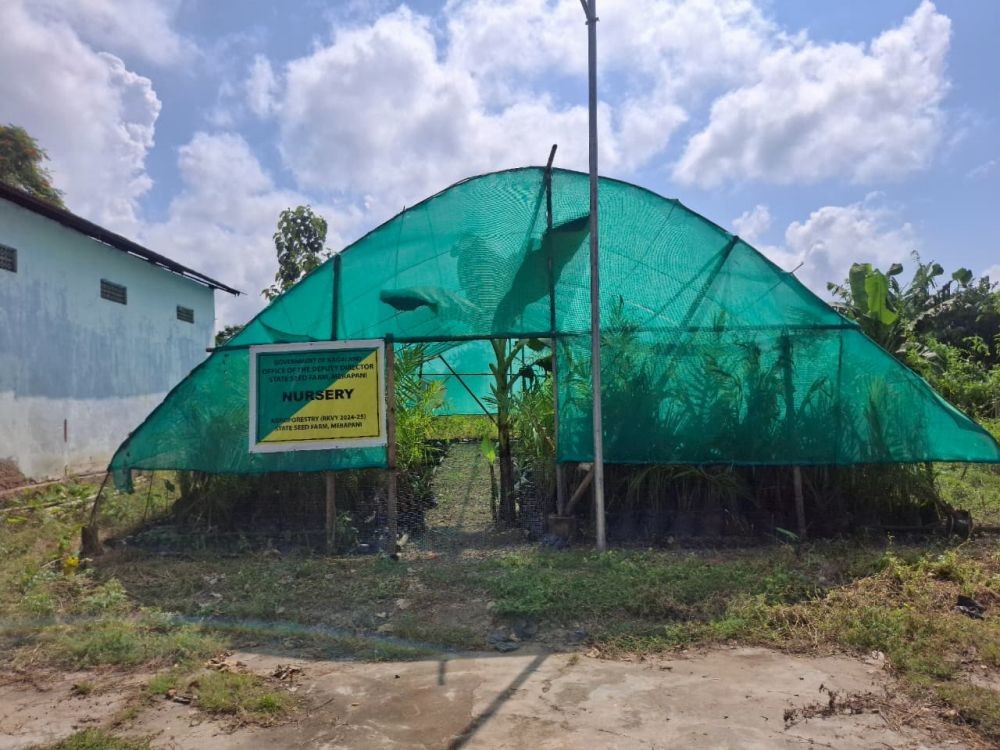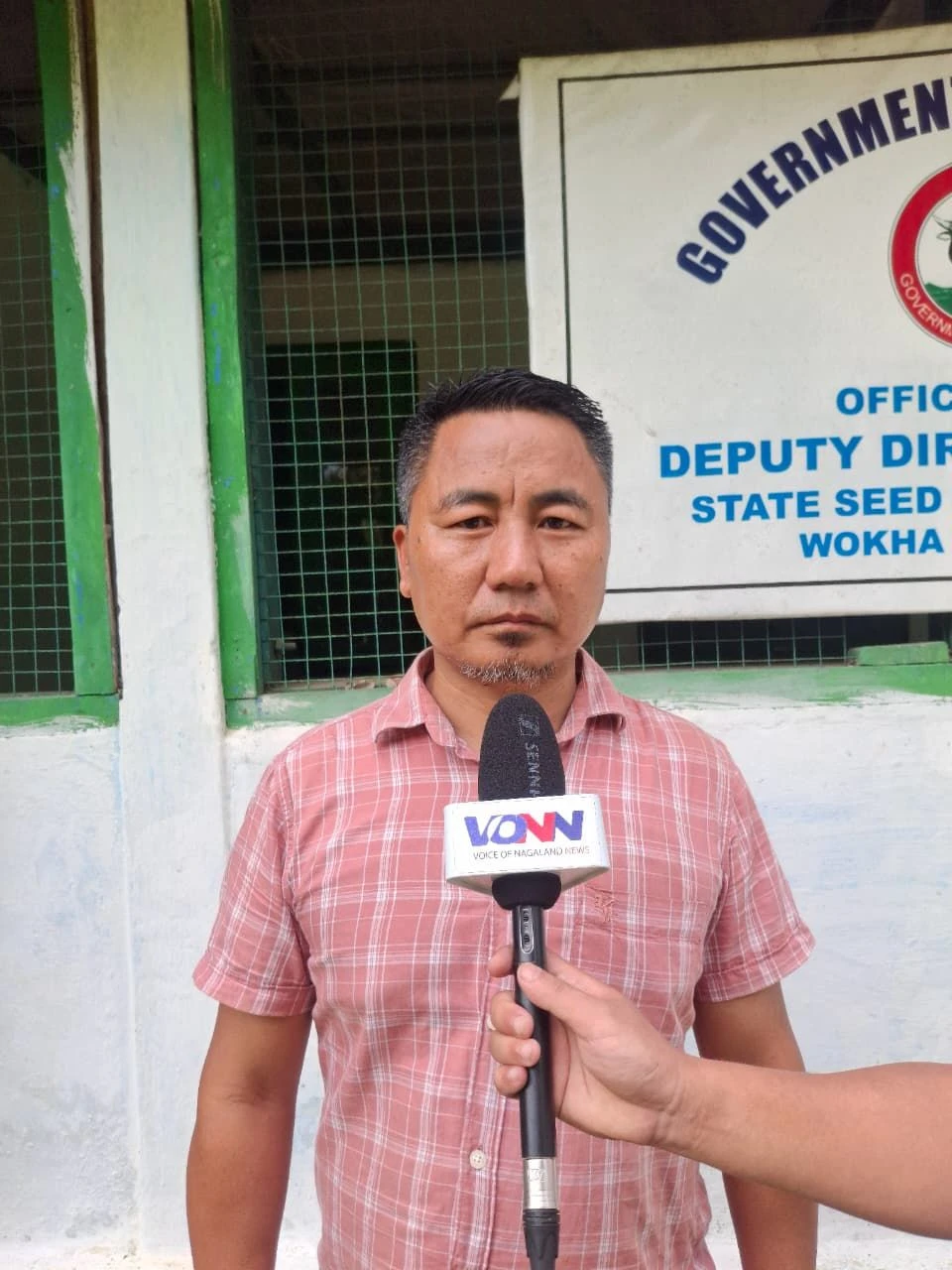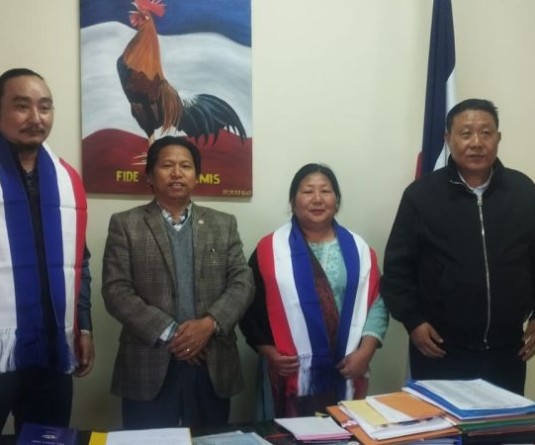The monolith marking the location of the Nagaland State Seed Farm in Merapani (Marachu), Wokha. (Morung Photo)

Morung Express News
Merapani (Marachu) | September 19
The Assam-Nagaland border is feeling renewed tension, but the issue, this time, is purportedly connected to oil palm. Recently, on September 15 and 16, the State Seed Farm in Merapani (Marachu), Wokha, faced demonstrations from locals on the Assam side claiming to be farmers expressing apprehension over the Nagaland Agriculture department undertaking an oil palm plantation project in the Seed Farm. The protest may have stopped for the time being, however, the threat of renewed agitation hangs in the air.
Deputy Director, incharge of the seed farm, Lawrence Zeliang, on September 19, told a section of the media that the recent protest saw a group of people gathering and chanting slogans. While the protest was purportedly over the risks posed by oil palm plantation on the environment, according to Zeliang, it was in essence rooted in claims that the land on which the seed farm sits, belongs to Assam.
.webp)
“The protestors chanted slogans like, ‘This is Assam's land. This is not Nagaland's land,’” he said.
He said that the State Seed Farm in Merapani was established in 1969 under the aegis of a seed production programme of the Ministry of Agriculture, Government of India on land covering 534 hectares, making it the largest government farm in Nagaland.
He maintained that its establishment predates the first interim agreement over the disputed border between Nagaland and Assam. He questioned the legitimacy of the protestors claiming ownership of the land, reminding that the civil suit filed by the Assam government at the Supreme Court, in 1988, has not been settled yet.
He referred to a 1982 agreement taken at the Chief Secretarial level of the two state governments. In that agreement, he said that the Assam governments assured to protect the preexisting boundaries of the state seed farm in Merapani from encroachment. According to him, this agreement has not been honoured.
Zeliang further refuted claims made by the protestors that the department will be planting “thousands and thousands” of oil palm saplings, affecting paddy cultivation in the surrounding area. On the contrary, he said that they had brought only 700 saplings, as part of the National Mission on Edible Oils, to be planted on a small segment of the farm. He added that the oil palm plantation is planned for only about 5 percent of the farm's total area and will not affect the land currently used for paddy cultivation.

As a government entity, he said that the seed farm will follow the directives of the Nagaland government and not at the dictates of individuals or organisations.
According to sources, the protestors have given time till September 24 to stop the oil palm plantation in the seed farm or face renewed agitation from September 25.
Queried on the working conditions at the farm, the Deputy Director said that the land is vulnerable to frequent disturbances given its isolated location. Geographically, he said, “We are cut off from the Nagaland side. All sides are surrounded by Assam. We face many difficulties in implementing or executing activities and programmes.”
The lack of a reliable electricity connection was cited a major infrastructural deficit with the official stating that it has hampered the farm’s functioning.
He also mentioned that developmental activities, including the construction of staff quarters and fencing, are often met with objections from the Assam government and public. It faced vandalism on April 2, 2025, when unknown miscreants destroyed around 500 metres of recently erected bamboo fencing. A complaint was filed at the Bhandari police station regarding this incident.





